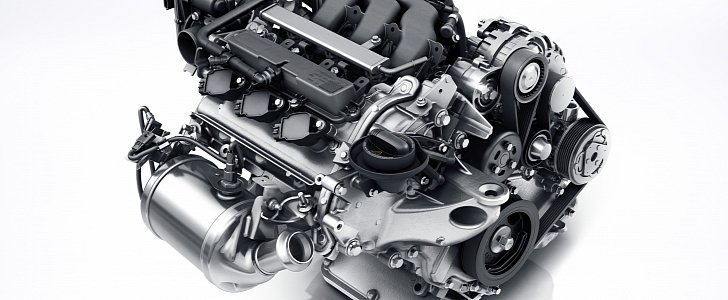Now here's something a lot of us never stop to think about: a lot of wayward cash spending could be avoided if automakers were more inclined towards working with each other on developing new technology.
It's true that a large number of electrical and electronic sub-components are manufactured by third party companies such as Bosch, for example, who then sell them to various brands to be fitted into their new cars, but it's not the case with all car parts.
One such example would be the good old engine. Since 2012, no less than 12 major global automakers have introduced new, three-cylinder units in their lineup. The estimated total cost of their development? Sit down, sip some cold water and read on: 10 to 12 billion US dolars. That's anything between 9 to 11 billion euros. How much did Greece owe the IMF?
You can't compare an engine to some brake pads, though, right? Right, but it's also true that these small three-cylinder engines in particular are basically an economical choice, so customers couldn't care less if they were developed by Ford, VW, Renault or by a joint venture between the three.
At the end of the day, these huge costs will be reflected by the vehicles' sale price. High prices will make the end user think twice about buying a new car and that's exactly what the car market doesn't need right now.
BMW, on the other hand, after its MINI success story which used Chrysler, Peugeot and Toyota engines over the years, has now adopted a modular approach to engine design. That way, some of the engine components will be shared across the range regardless of the actual displacement.
Obviously, in the case of luxury or sports cars, sharing important components would be borderline suicidal in most cases. Still, nobody complained about the BMW V12 in the McLaren F1 hypercar, not to mention the upcoming Aston Martin models which should use AMG-sourced engines.
To put things into perspective, we're going to turn to none other than Sergio Marchionne, Fiat Chrysler Automobiles CEO. According to his calculations, on average, every four years an automaker invests in development a sum equal to the whole company's value. The fact that they're able to do that without going bankrupt the next instant is great, but just imagine what could be achieve if egos were put aside and all this money was better administered.
One such example would be the good old engine. Since 2012, no less than 12 major global automakers have introduced new, three-cylinder units in their lineup. The estimated total cost of their development? Sit down, sip some cold water and read on: 10 to 12 billion US dolars. That's anything between 9 to 11 billion euros. How much did Greece owe the IMF?
You can't compare an engine to some brake pads, though, right? Right, but it's also true that these small three-cylinder engines in particular are basically an economical choice, so customers couldn't care less if they were developed by Ford, VW, Renault or by a joint venture between the three.
At the end of the day, these huge costs will be reflected by the vehicles' sale price. High prices will make the end user think twice about buying a new car and that's exactly what the car market doesn't need right now.
The solution?
It's easy. You see partnerships being stricken more and more often, with various automakers ready to acknowledge they might not be the best at everything and thus an expertise exchange would benefit all sides. That's how you get things like the Mercedes-Benz Citan. But as it happens, the Daimler-Renault alliance also covers the development of a three-pot power unit.BMW, on the other hand, after its MINI success story which used Chrysler, Peugeot and Toyota engines over the years, has now adopted a modular approach to engine design. That way, some of the engine components will be shared across the range regardless of the actual displacement.
Obviously, in the case of luxury or sports cars, sharing important components would be borderline suicidal in most cases. Still, nobody complained about the BMW V12 in the McLaren F1 hypercar, not to mention the upcoming Aston Martin models which should use AMG-sourced engines.
To put things into perspective, we're going to turn to none other than Sergio Marchionne, Fiat Chrysler Automobiles CEO. According to his calculations, on average, every four years an automaker invests in development a sum equal to the whole company's value. The fact that they're able to do that without going bankrupt the next instant is great, but just imagine what could be achieve if egos were put aside and all this money was better administered.

